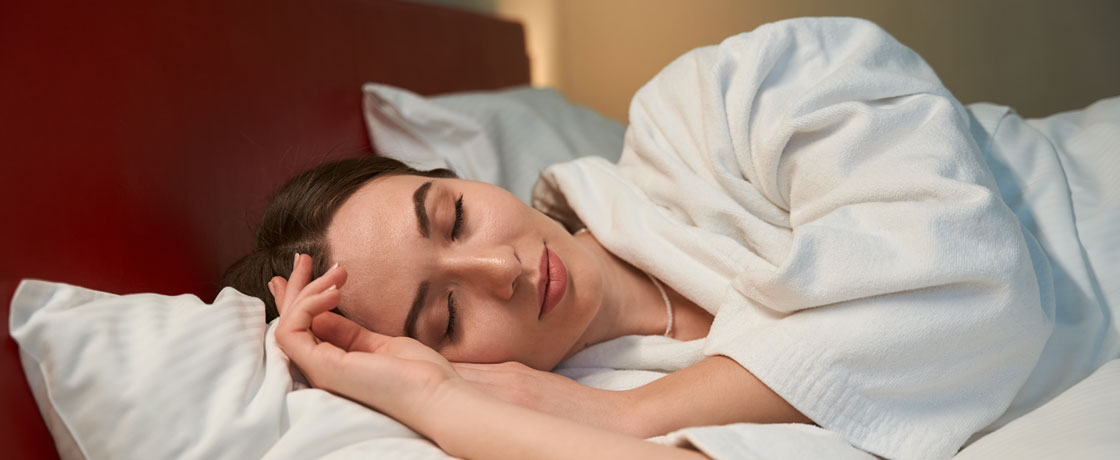Enhancing Sleep Quality: Strategies for Optimal Sleep Hygiene
Sleep, an essential pillar of well-being, plays a pivotal role in maintaining physical health, mental acuity, and overall vitality. Sleep hygiene optimization involves adopting practices and creating an environment conducive to quality sleep. By embracing healthy sleep habits and fostering a sleep-friendly atmosphere, individuals can attain restorative sleep, promoting better health and enhanced productivity.
Understanding Sleep Hygiene
Sleep hygiene refers to a set of practices and habits that facilitate healthy and restful sleep. It encompasses various factors, including sleep duration, sleep environment, bedtime routines, and lifestyle choices that impact the quality of sleep.
Strategies for Improving Sleep Quality
- Consistent Sleep Schedule: Maintain a consistent sleep-wake cycle by going to bed and waking up at the same time every day, even on weekends, to regulate the body’s internal clock.
- Create a Relaxing Bedtime Routine: Develop a relaxing pre-sleep routine, such as taking a warm bath, reading, or practicing relaxation techniques like meditation or deep breathing, to signal to the body that it’s time to unwind.
- Optimize Sleep Environment: Ensure the sleep environment is conducive to rest. Keep the bedroom dark, quiet, and cool, using blackout curtains, white noise machines, or earplugs if necessary. Invest in a comfortable mattress and pillows for optimal comfort.
- Limit Stimulants and Electronics: Minimize caffeine intake and avoid stimulating activities, like using electronic devices or engaging in intense workouts, close to bedtime, as they can disrupt sleep patterns.
- Mindful Eating: Avoid heavy meals and large amounts of fluids close to bedtime to prevent discomfort and disruptions during sleep.
- Manage Stress: Practice stress management techniques, such as mindfulness, yoga, or journaling, to alleviate anxiety and promote relaxation before bedtime.
Cultivating Healthy Sleep Habits
- Regular Exercise: Engage in regular physical activity, but aim to complete workouts several hours before bedtime to allow the body to wind down adequately.
- Limit Naps: Avoid long or late-afternoon naps, as they can interfere with the body’s natural sleep drive and disrupt nighttime sleep.
- Establish a Wind-Down Routine: Incorporate calming activities into the hour before bedtime to signal to the body that it’s time to prepare for sleep.
- Monitor Sleep Environment: Ensure the sleep environment is optimized for comfort and relaxation, free from distractions that may disrupt sleep.
- Mindfulness and Relaxation Techniques: Practice relaxation exercises, such as progressive muscle relaxation or guided imagery, to calm the mind and prepare for sleep.
Prioritizing Sleep for Overall Well-Being
The significance of sleep for overall health and well-being cannot be overstated. Quality sleep contributes to:
- Improved Cognitive Function: Adequate sleep supports cognitive functions like memory consolidation, problem-solving, and decision-making.
- Enhanced Immune Function: Quality sleep strengthens the immune system, aiding the body’s ability to fight off infections and illnesses.
- Emotional Well-Being: Good sleep promotes emotional regulation, reducing the risk of mood disorders like depression and anxiety.
- Physical Health: Quality sleep is associated with a lower risk of chronic conditions, including cardiovascular diseases, obesity, and diabetes.
Conclusion: A Restorative Path to Health
Optimizing sleep hygiene is pivotal for achieving restorative and rejuvenating sleep. By implementing strategies that promote healthy sleep habits and creating a sleep-conducive environment, individuals pave the way towards improved health, heightened cognitive function, and a more vibrant and fulfilling life. Prioritizing quality sleep is an investment in overall well-being, empowering individuals to embrace each day with vitality and clarity.


